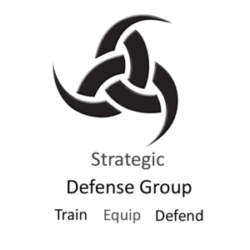Yeah… I said it! I’ll say it again too; Guns are not always the answer! Well, now that you are yelling at your screen let us take a quick walk through the park to cool off. We are walking through the park on a brisk evening, enjoying a display of lights just before Christmas. There are a lot of other people in the park all around us but, it is fairly secluded and peaceful in this section. Before you realize what is going on some punk jumps out from behind a well decorated pine tree. He is not holding a weapon, you see both his hands and they are empty. He is making erroneous threats and saying he will beat you up and take your wallet if you don’t give it to him. He has not touched either us, he is about 6 feet away, and he is alone as far as far you can tell. There are two of us, we are both carrying guns, and there are a lot of people around including small children just on the other side of the bushes. What do you do!?
Hold up! Before you answer; think through the entirety of the scenario. Can you shoot him? We are both packing after all. What lethal threat has he presented to authorize you such action? If you see any, I missed it. Even if you are in a “stand your ground” state, justifying that shoot would be a stretch at best. If you are in a “duty to retreat” state, you must run away from the guy before you use lethal force, even if it is justified.
So, if I can’t shoot him, what can do? Now you are asking the right question. The answer: A lot! There are many options available to you that can be summarized in this phrase: Non-Lethal. Anything that is not likely to result in serious physical injury or death is on the table. Here is one I like: Pepper Spray. It is cheap, easy to obtain, effective, and easy enough to deploy a child can do it, and most importantly, it is not lethal.
This punk is a threat no doubt, he is threatening to beat us up and seems to be willing and capable of doing so, or at least trying. But he is not a lethal threat as described. That leaves us with a gun that we have trained with and a moment we have physically and mentally prepared for, and we can’t use the gun… The gun is not the answer here. Firearms are great for defense in the narrow field of lethal force. There are only a few triggers that allow for lethal force. In contrast however, there are a plethora of triggers for non lethal force.
Quick side note: Don’t hear me saying that you should stop thinking about your gun and training with it. Even though it may be a narrow field, lethal force is extremely serious and you should be proficient and ready to meet this force with your handgun. What I am saying is you need to prepare and be prepared for those encounters where the gun cannot help you. Additionally, the threat as described above could become lethal in an instant. Just because you don’t see a knife or gun does not mean he does not have one, but I digress.
I want to get you out of this single track mindset of get to my gun. Do you need to be prepared and well-trained with your gun, you betcha! However, there are countless scenarios in which you need to defend yourself and your loved one(s) with non-lethal force. Please, promise me one thing: If you decide to start carrying pepper spray with you, do not leave it buried in your purse, pocket, or glove box… Like your gun, you need to be able to get to it in an emergency and quickly. Whatever non lethal tool(s) and/or systems you wish to employ train in them and with them. Train hard, and fight like your life depends on it, it just might.
What can we learn?
- Guns are not always the answer
- I love guns, I mean I really really enjoy guns; that said, guns are still not always the answer
- Guns are a last resort, you would be amazed at how much you can do for your personal safety before you ever get to the solution that is a gun. These are a small part of a big picture, albeit a critical one
- There are countless situations in which you need a non lethal solution, get some non lethal tools, train with them, carry them, and be prepared to deploy them
- Understand the laws in your state. Be very clear on what the law allows for lethal force, learn it so well that you don’t have to think about it in the moment, you can just react appropriately
Stay Sharp,
Adam
